Project Triangle Strategy demo is promising for those who loved Fire Emblem: Three Houses
Project Triangle Strategy demo is Octopath Traveler meets Final Fantasy Tactics with a sprinkling of Fire Emblem: Three Houses
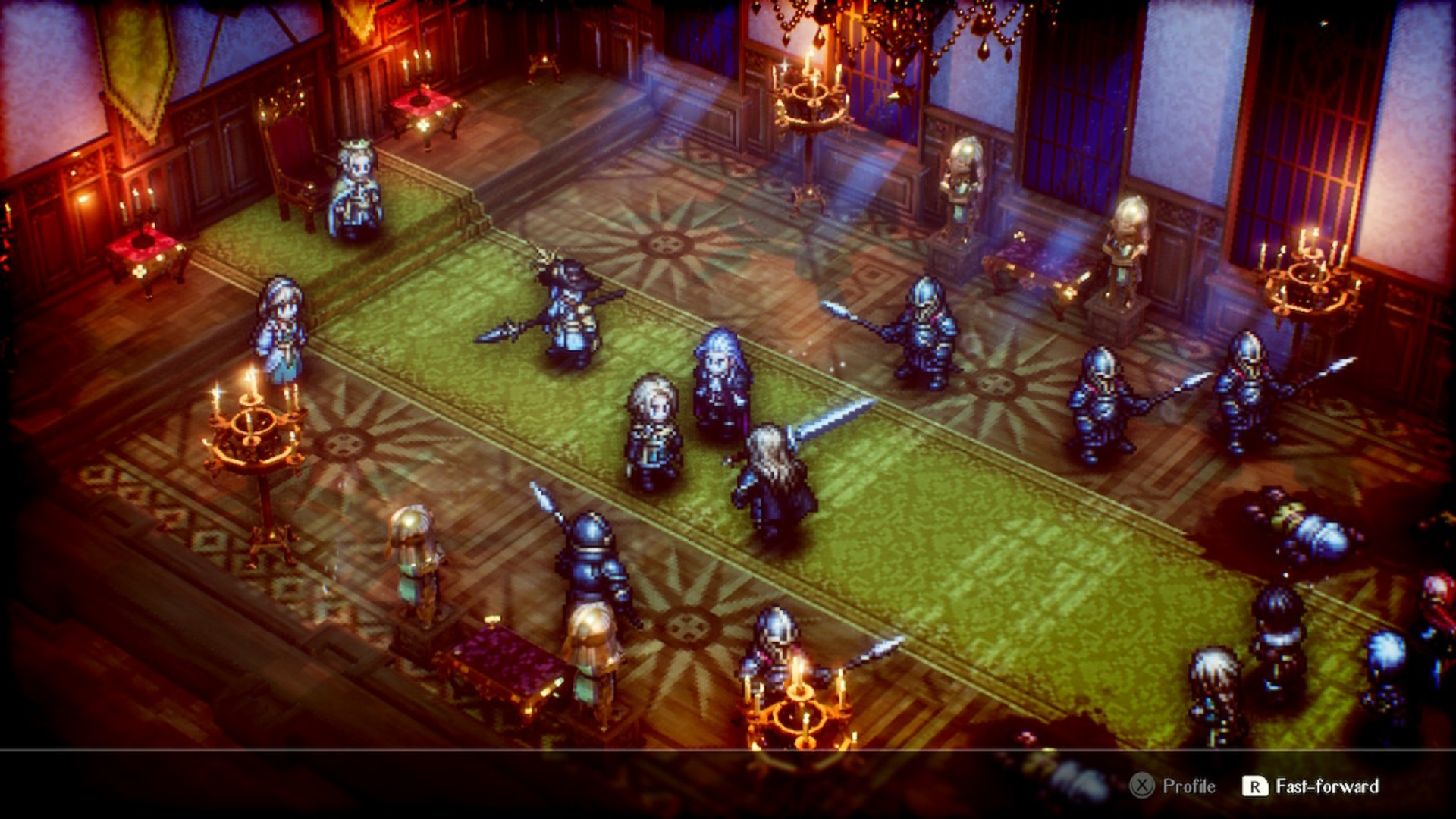
As a longtime Fire Emblem fan, I can't help but be drawn to Project Triangle Strategy (lacklustre working title aside). After playing Fire Emblem: Three Houses to death back in 2019, I'm more than ready for a new strategy-based adventure and Square Enix's upcoming RPG seems to fit that bill perfectly. As the second game in Square Enix's HD-2D series, the delightful sprite style seen in Octopath Traveler makes a comeback, and brings to mind the old school vibes of classic strategy games that landed on the Game Boy Advance so many years ago, like Fire Emblem: The Sacred Stones and Final Fantasy Tactics Advance.
After seeing a brief glimpse of Project Triangle Strategy in the most recent Nintendo Direct, I was all too keen to jump right in and check it out for myself. I've since played through the demo a few times, and I've already found a lot to love about Square Enix's strategy RPG… but there are some aspects that give me a moment's pause. Still, whether you're a Fire Emblem fan like me or just fond of the strategy genre in general, Project Triangle Strategy holds a lot of promise and ticks a lot of very good boxes.
From the off, the demo notifies you that you're about to be thrown into the middle of the game, so you might not truly grasp what's going on. Within the first few minutes, scores of names are thrown at you as a narrator explains that three main powers reign over the continent of Norzelia. As it begins in chapter 6, I admittedly find it a little overwhelming to follow, but I do glean that different nations are vying for power, not unlike Three Houses, and all of the powers at play have vested interests of their own. You play as a newly appointed Lord called Serenoa who fights alongside Prince Roland, and it's not long before you're presented with your first battle.
Trial and error
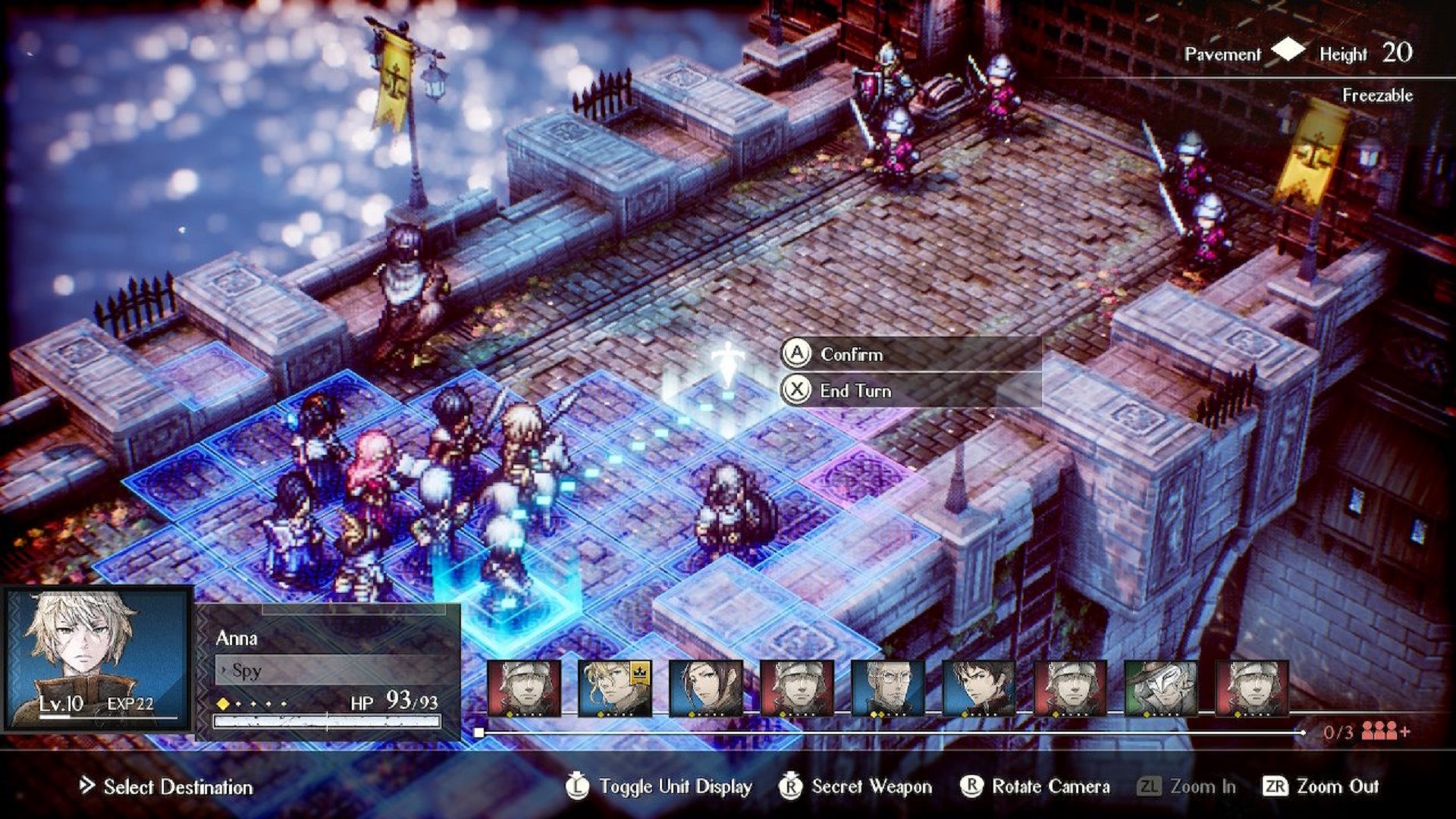
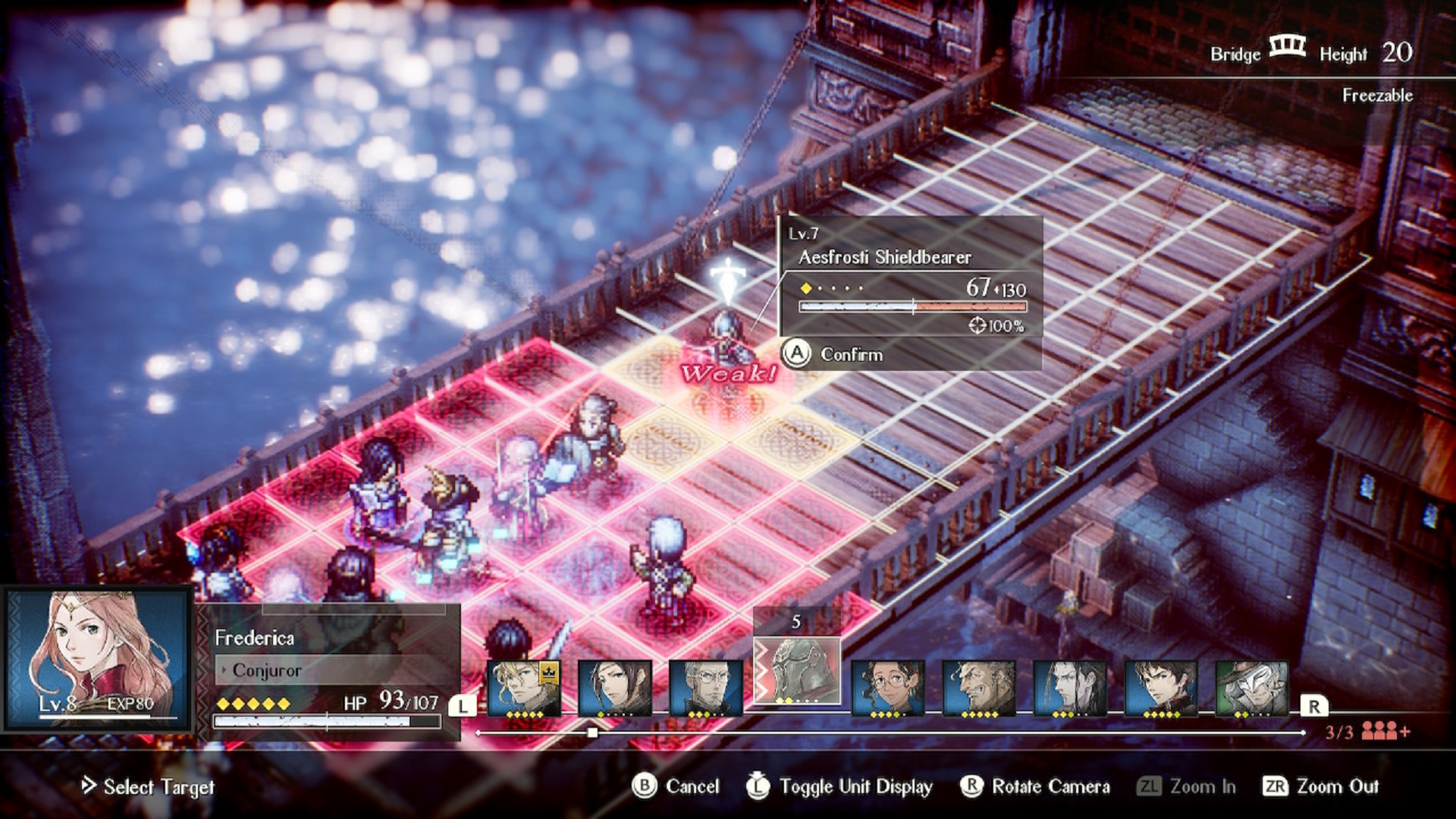
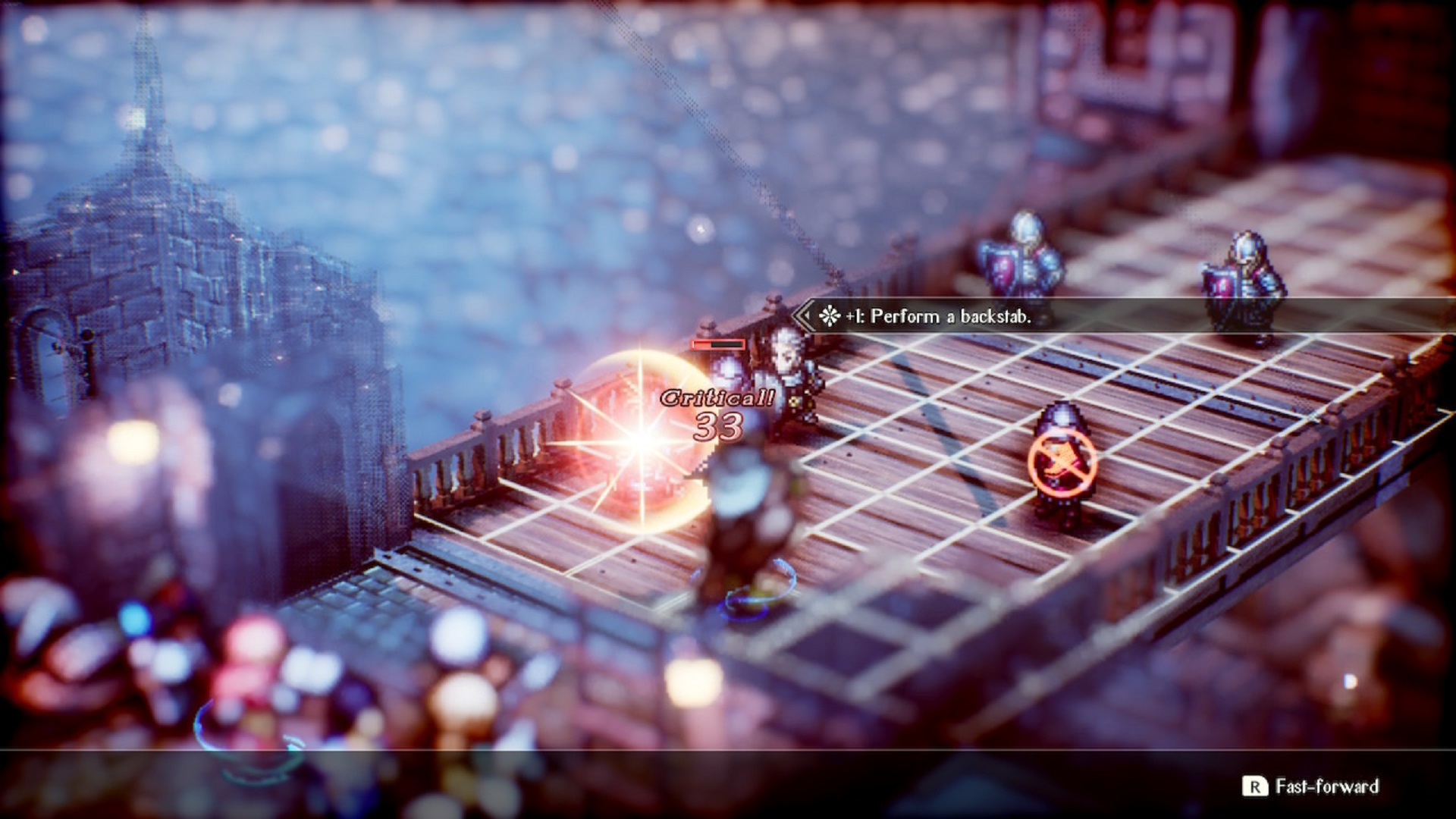
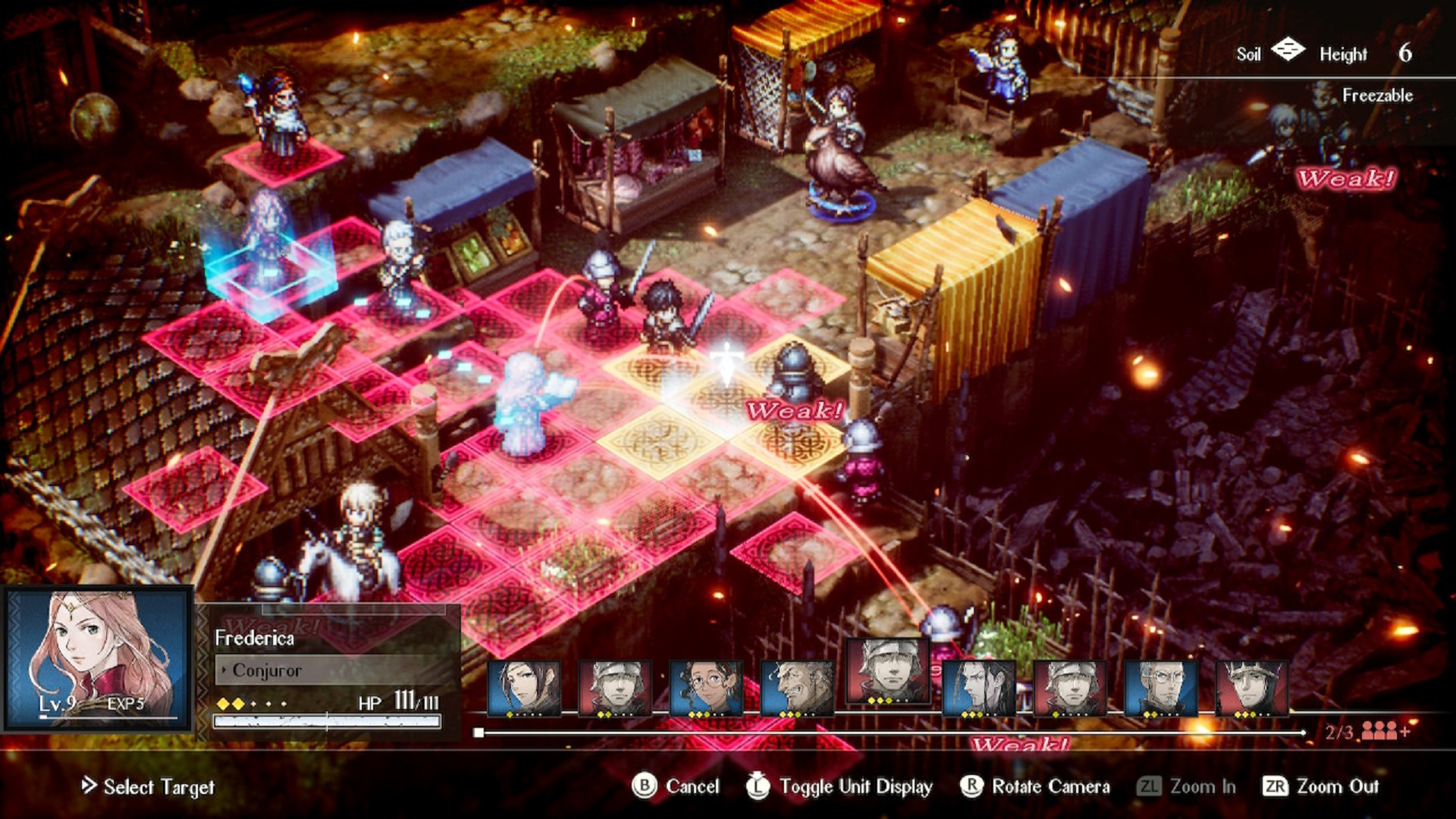
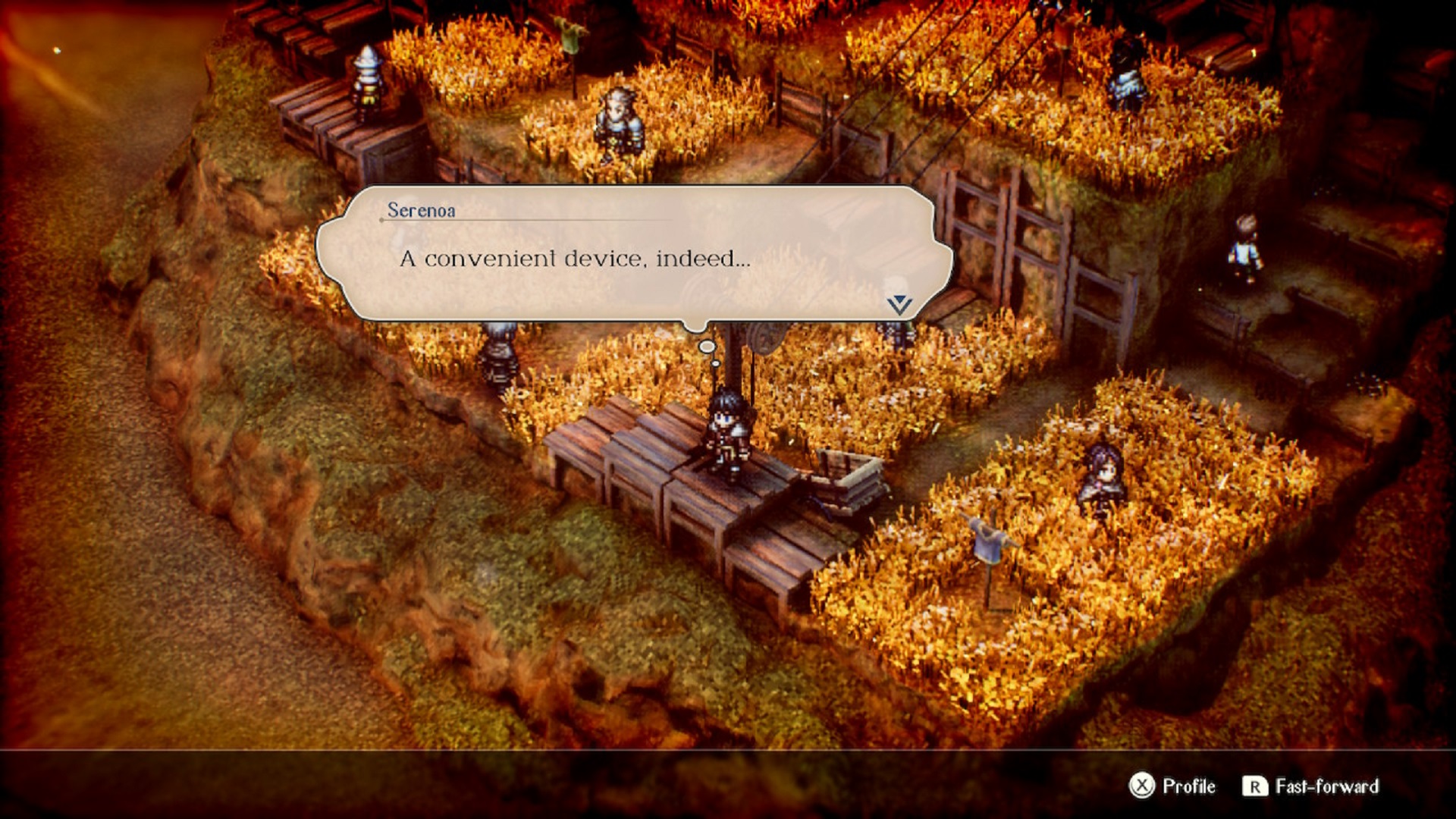
Before you get stuck into any of the action, the demo also establishes that the battles have been "ramped up in difficulty" to allow you to "fully experience the depth of the combat system in a limited number of stages". As much as I'm a fan of strategy games, I can often find myself getting stuck during an especially challenging battle, which is why I really appreciated the more forgiving difficulty settings in Fire Emblem: Fates and Three Houses. Of course, the level of difficulty makes sense for the demo, to give players a real taste of the level of challenge it can present you with, but it does leave me wondering what settings will be available in the full release and if there will be options that might make it more open to newcomers.
With a grid-based layout and turn-based format, the battles will instantly feel familiar to you if you've tucked into any of the aforementioned strategy games. Various unit types, each equipped with a variety of unique skills, are under your command, and how and where you position them plays a big part in your success. In Project Triangle Strategy, delivering a blow to an enemy from behind is more effective, since you deal critical backstab damage. Attacking an enemy from high ground can also make a move more powerful and certain battlefields also feature environmental elements you can use to get a one-up over your enemies, so it pays to move your units to advantageous spots. At the end of each turn, you also decide which direction a character is facing, which is equally important since enemies can also move behind you to take advantage of the same attack and defense modifiers that you can.
The first time I give it a try, the entire battle plays out like a round of trial and error as I get to grips with all of each character's different abilities and the layout of the battlefield. I'm not successful the first time around after the unit I need to keep alive gets surrounded, but I take the knowledge of what didn't work the first time around into my second attempt. Once I begin to fall into the flow of battle and get the hang of everything, I start to get a sense of just how satisfying the strategic combat system is, and I'm left feeling rewarded for finally emerging victorious.
Choices and consequences
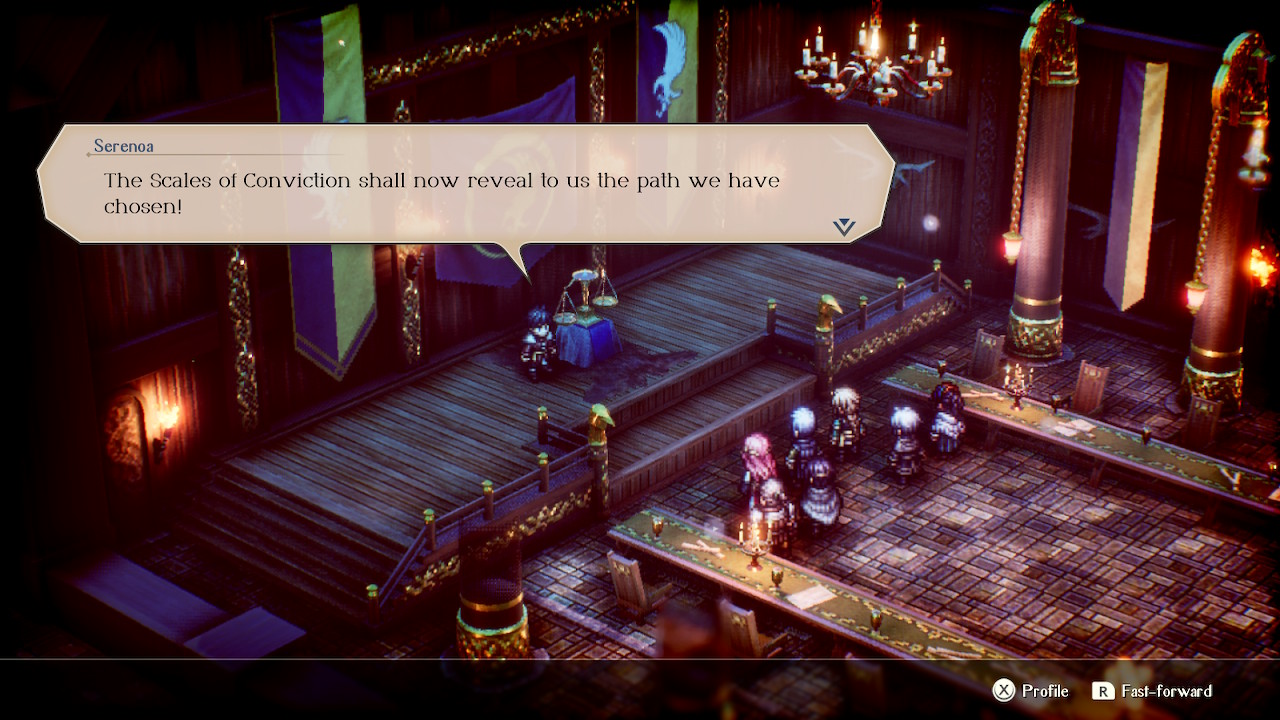
The combat system shows a lot of promise, but there's another feature in Project Triangle Strategy that's far more engrossing to me. Prior to the first battle, you're introduced to a feature known as the Scales of Conviction. Utility, Morality, and Liberty are the three guiding convictions in the world of Norzelia, and every time you make a decision or choose a response, you will deepen Serenoa's convictions. While it's not as character-driven in the same way as Fire Emblem: Three Houses is, in between the battles and story cutscenes, you'll have the chance to gather information, check on your allies, and examine the surrounding terrain ahead of any fights in what's known as the 'Exploration phase'. Prior to the first battle, I get to speak to some of the members of my party and gather items dotted around the area. It's here that the Scales of Conviction first come into play.
Weekly digests, tales from the communities you love, and more
After speaking with one of my allies, I'm presented with three responses to choose from which are seemingly tied to the guiding convictions. The response you make can influence how the world views Serenoa, and may affect who will come to join your cause in the future. Alongside these subtler choices, there are points where a big decision has to be made that will change the path you're on. In a later chapter in the demo, you encounter a Voting scene where the direction of the story is determined by the overall consensus of your party. Just as you build up Serenao's principles, every ally will have their own convictions that will guide them to vote in a certain way.
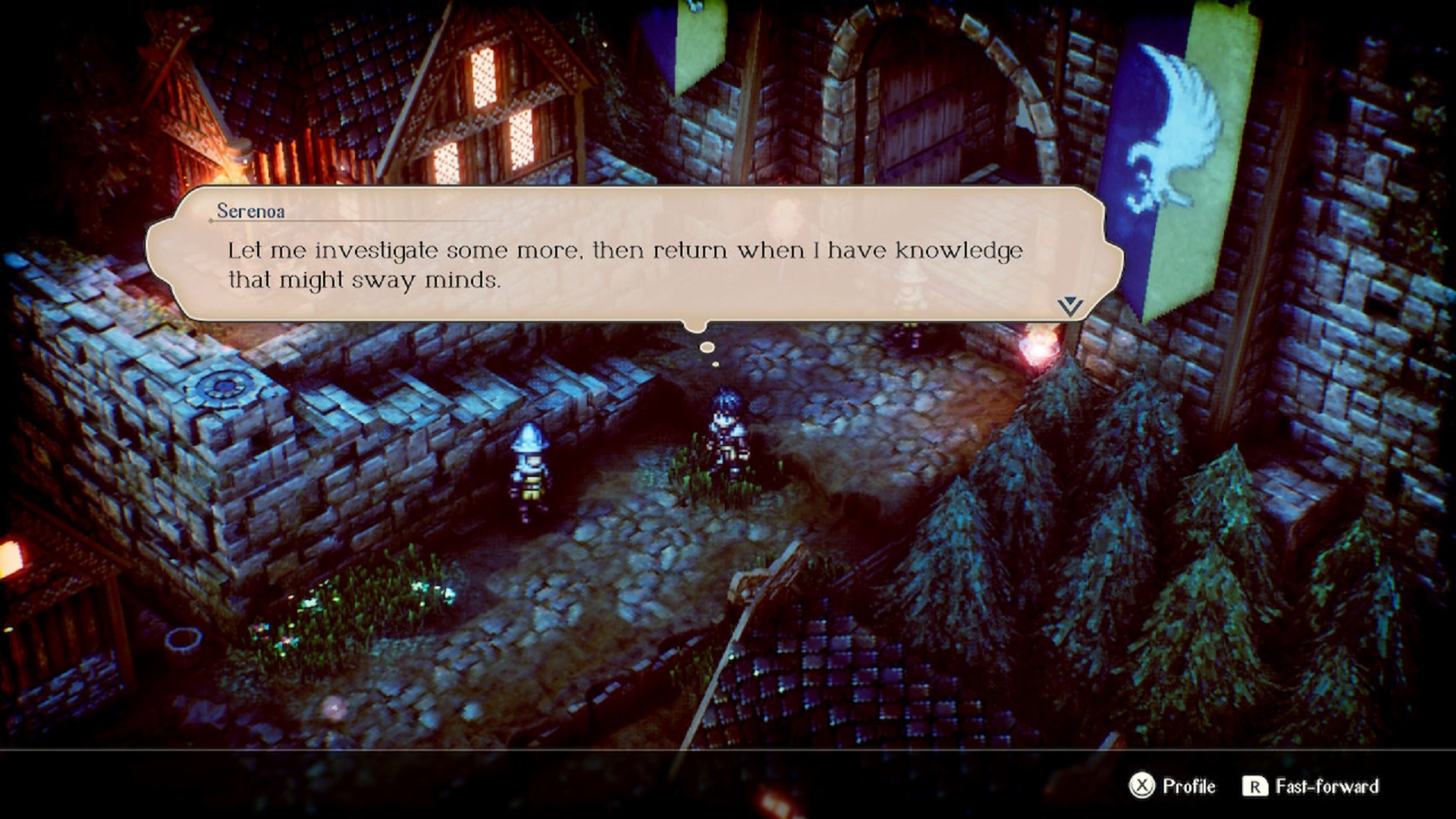
With two paths to choose from, you can see who is voting for what path and who still remains undecided. Just as you command them on the battlefield, you can also try to sway your party to vote in favor of the path you want to follow by gathering information that can be used to persuade them to change their mind. After exploring the nearby town and gathering as much information as I can, I set about trying to persuade the majority of my party to vote my way and manage to pull off a unanimous decision. Naturally, after progressing through the first path I voted for, I feel compelled to see what happens if I decide to take the other route. What unfolds is drastically different from the first, which really adds an immersive feel and gives you a tangible sense of just how much weight these tough decisions have over the direction of the story.
So far, the game only seems to be let down somewhat by the localized voice acting, which ranges in quality throughout and can sometimes be quite stilted in delivery. It's still early days of course and as with any demo, this doesn't necessarily reflect what will be in the final release, but it did occasionally take me out of moments that should have been more emotive than they came across. Overall, though, I thoroughly enjoyed my time with the demo of Project Triangle Strategy. The combat is satisfyingly involved, and I'm already keen to see what other big decisions I might be faced with that will determine how the story plays out.
If you want to look back on the recent Nintendo showcase, here's everything that was announced in the February Nintendo Direct.

I started out writing for the games section of a student-run website as an undergrad, and continued to write about games in my free time during retail and temp jobs for a number of years. Eventually, I earned an MA in magazine journalism at Cardiff University, and soon after got my first official role in the industry as a content editor for Stuff magazine. After writing about all things tech and games-related, I then did a brief stint as a freelancer before I landed my role as a staff writer here at GamesRadar+. Now I get to write features, previews, and reviews, and when I'm not doing that, you can usually find me lost in any one of the Dragon Age or Mass Effect games, tucking into another delightful indie, or drinking far too much tea for my own good.


